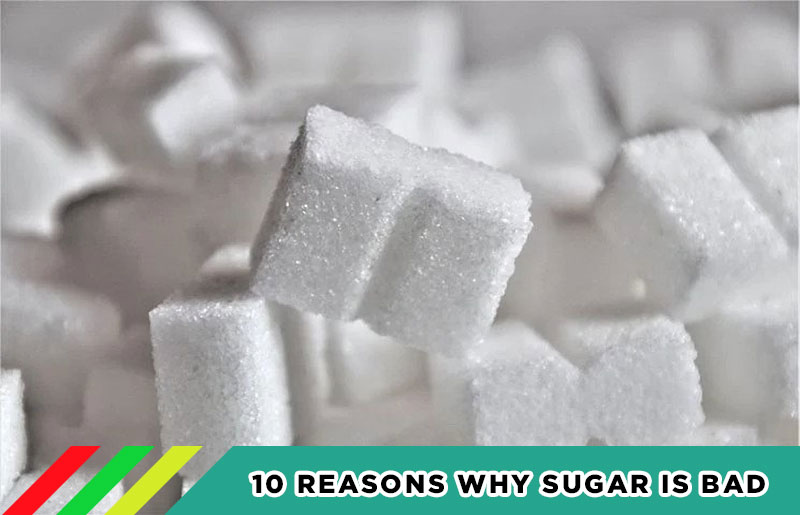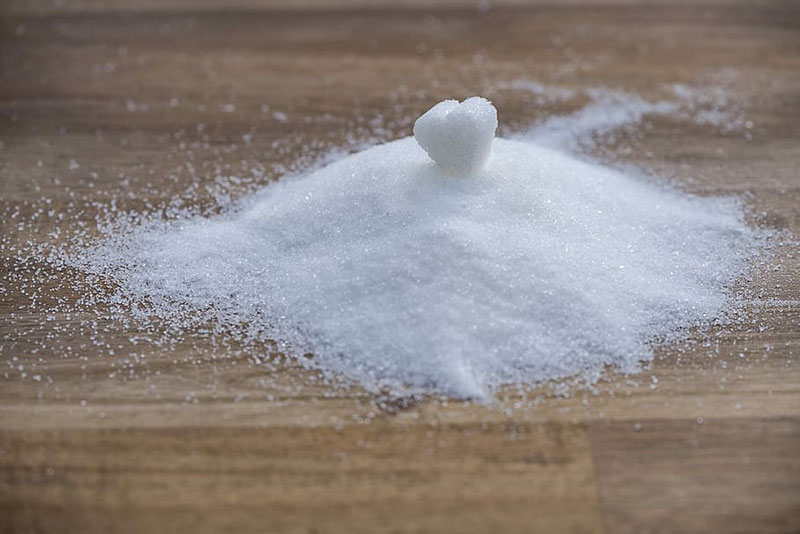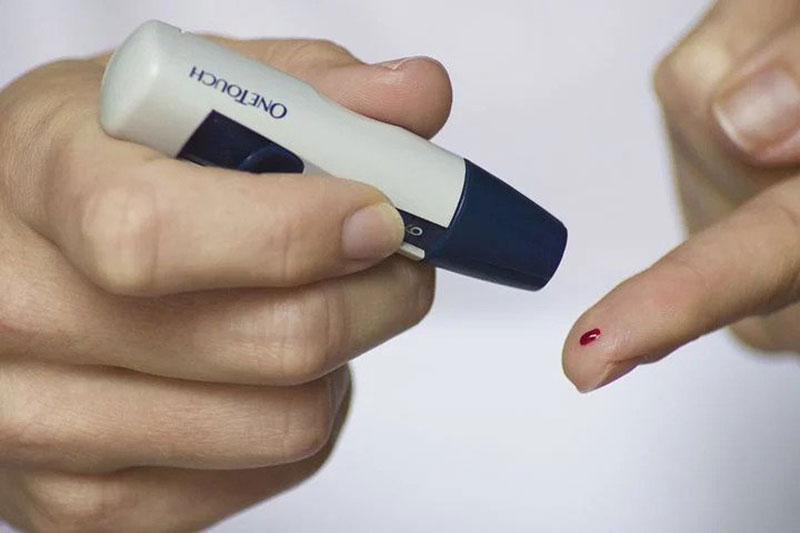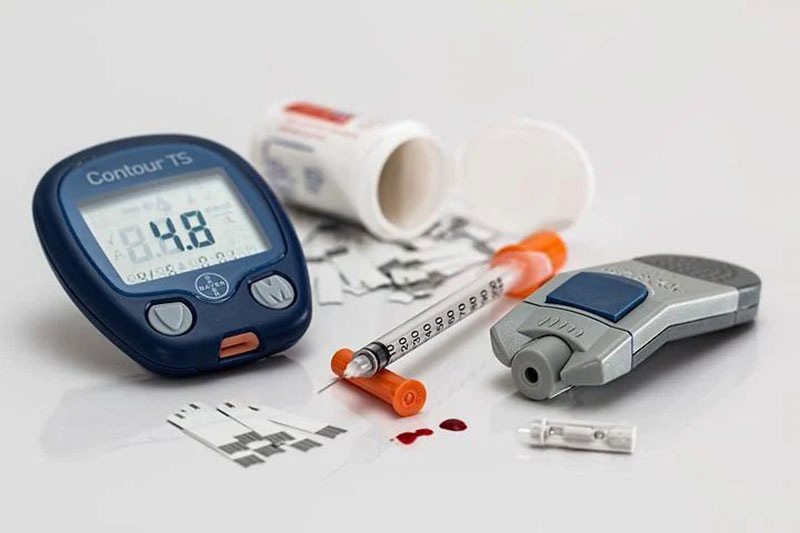Have you ever thought for a second what added sugar does to your body?
Like a lot of food, you never can tell just what a sweet, delightful substance can do. Surprisingly, added sugar does nothing sweet to your body.
There is science-based evidence on the dangerous effects of sugar on your overall health. For your enlightenment, let’s count the ways as to how it harms you and countless others on earth.
1. Sugar increases chances of heart risk
Realizing how harmful sugar is may totally bum you out especially if you’re so much into it. All these years, you thought every effect it gave you was pleasurable, since all it ever gave your taste buds was pleasure, after all.
But little did you know that it can be ranked together with saturated fat, as one of the most damaging elements ever.
In addition, evidence mounting recently reveals a new realization that sugar is actually worse than saturated fat in promoting heart diseases. Even more, studies have shown that cardiovascular disease can’t all be blamed on saturated fat. It is added sugar at play, all along.
The detrimental effects of high fructose intake potentially contribute to the alarming rate of the disease worldwide. Sugar plays a dominant role in raising your cholesterol, which then multiplies the possibility of getting a heart disease.
2. The secret to obesity is sugar
Ever wondered why your waistline never seems to slenderize despite careful measures? Well, you might want to look at how much sugar is in your diet.
Statistics have shown how overweight or obese individuals have excessive sugar consumption. Both adults and children whose sugar intake are above normal run the risk of being obese.
Yet, this applies most to children who easily fall prey to sugar-sweetened beverages. According to a study conducted way back 2001, the mere daily serving of such alluring drink raises at least 60% risk of an obese health condition.
3. Fructose in sugar overwhelms your liver
The downside of sugar also takes place in the liver. But first, it’s crucial to comprehend the processes sugar undergoes in your body. Sugar is split into glucose and fructose before it reaches the bloodstream. These two simple sugars hold different roles.
Glucose, for one, can be generated in a person’s own body, as well as diet. On the other hand, unlike glucose, a person’s body cannot produce fructose. It is the liver itself that processes fructose by metabolism.
The fructose then changes into glycogen which is reserved in the liver until use. Now, all seems pretty well in this scenario.
However, the problem arises only when there’s too much glycogen in the liver. The fructose stored in the organ soon changes into fat.
Excessive amounts of fructose set the ball rolling for problems such as a fatty liver. This is especially true for individuals who are inactive and less tolerant with respect to sugar.
4. Too much fructose in the liver paves the way to Non-Alcoholic Fatty Liver Disease
The moment fructose turns into fat is not in itself a worrying matter. It is only natural for the fat to get out as cholesterol particles known as VLDL. Yet the thing is, not all fructose-turned fat gets out.
The concerning moment is when the fat that remains takes shelter in the liver. It becomes threatening when destructive diseases start to take form.
One common disease is Non-Alcoholic Fatty Liver Disease (NAFLD). What many people affected by this disease share in common is an elevated level of fructose. Their consumption of fructose is doubled or tripled than the average individual.
5. Sugar highly triggers Insulin resistance
Excessive sugar in your diet poses negativities in your hormones. Among these is Insulin, which is crucial in allowing glucose to burn.
Once insulin fails to enforce its function to the body, it downgrades into serious complications like Metabolic Syndrome and Diabetes.
Worsening Insulin Resistance is a contributing factor to the formation of such diseases. The danger of consuming excessive sugar is when insulin no longer works as expected. When resistance to this hormone insulin happens, the body becomes frail against certain illnesses.
6. Worsening Insulin resistance may lead to Type II Diabetes
Things spiral down to serious complications when a person’s insulin resistance weakens. Such deterioration signals the ungovernable rise of blood sugar.
The pancreas functions as an insulin-producing component of the body. It helps in maintaining the blood sugars low when cells start to resist the impact of insulin.
When blood sugar soars, this opens the threat of Type II diabetes. This very instance shows how consequential sugar is in a person’s bodily condition, and how negative the consequences are.
7. Added sugar damages your teeth
The cautions of the elderly and dentists were no mind-games. Back in the day, when they warned us to always brush our teeth after relishing a good old candy, they meant well.
Added sugar, if you haven’t known by now, is the most repelling reason why tooth decay exists. The bad bacteria in the mouth feed on the digestible energy provided by sugar. Hence, the more you devour these irresistible sweets, the greater the damage.
Besides, added sugar offers no essential nutrients. There is a reason why it’s deemed as an empty calorie. Just because it has a lot of calories, which is basically a measure of energy, doesn’t mean it is loaded with minerals, proteins, or any nutrients at all.
8. Sugar is cancerous
This may probably count as the worst of all the harms brought by sugar. To put it delicately, the consumption of sugar creates a domino effect on your body.
First, extreme sugar intake fosters high insulin levels. As a consequence, a towering insulin level can strongly build the cause of cancer.
In other cases, it also acts as a source of inflammation. It is, of course, no secret that inflammation in any part of the body can indicate the potential existence of such disease. There are enough grounds in showing how detrimental sugar is in a person’s metabolism.
9. Since sugar doesn’t necessarily ensure satiety, it can promote further food intake
The thing with sugar is that it’s tricky. Most people think that consuming a lot of sugary food and drinks will satisfy their hunger.
However, fructose doesn’t decrease the hunger level of a person in the same way as glucose does. One study shows how the hunger hormone ghrelin isn’t lowered as expected from fructose-sweetened drinks.
That is why people increased their food intake, thinking that it will satiate their body needs. And they wonder why they never seemed to be fulfilled. Sadly, most people don’t know how deep the rabbit hole can be.
10. Sugar is dangerously addictive
The dopamine release in the brain that sugar generates is comparable to abusive drugs, in a sense, that it is strongly addictive.
This explains why people who consume too much sugar just can’t keep their hands away from it. Junk foods, drugs, sugar, and other destructive substances have their way of getting a hold of you. No matter how much sugar you consume, the satisfaction rate just always seems to climb higher.
Uncontrollable bingeing on sugar, for instance, can be an alarming habit. You eat it without minding at all how it slowly eats you, too. That, friends, is when you know it has already gotten you.
Takeaway
It’s a hard pill to swallow but sugar does more harm than good. As early as now, it’s better to take heed and control your sugar intake before it controls you.













